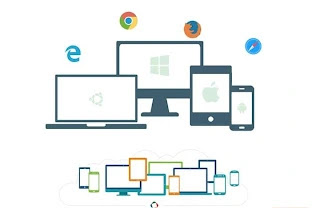To be a good manager you need to do a lot of management or supervisory work. In fact, this is true for most people in leadership. Even if you are a manager with proven work experience, you may lack sufficient training.
That is, under-supervising employees has nothing to do with laziness, disinterest, or incompetence. The opposite is rather true.
A good manager does not mean someone who obsesses over the details. Do not do anything without the instructions of the manager, the manager must be very strict, not even the subject. To be a good manager you need to be dedicated to work and discuss with employees at every step of the work.
Discussion means talking about yourself and listening to others. At the same time know about the needs of the employees and help them. These are the big parts of leading that many skip. Employees need to be given the right direction to work properly. If it is clear who is doing what, then everyone can do a good job. This can be explained by the ‘paradox of choice’.
As such, it may seem that having many options is good for us. But if there are more options, we have to work hard to make the right decision. So having too many options leads to indecisiveness and inertia.
So that we don’t make the mistake of under-supervising, as managers we need to follow the 8 fundamentals of management. What can be called, 8 basic formulas for intimately engaging with employees.
1. Practice Monitoring Daily
Avoid the habit of monitoring only on certain days. To keep the team working well, talk to everyone in person once every two weeks.
If you can’t do that, you will miss many details. Questions to ask in personal meetings with employees:
• What do you want from me?
• What is your plan? What action do you want to take next?
• How long will it take you to take the steps?
2. Focus On Performance
The best coaches may have a special ability to motivate people. But everyone can be a good trainer.
To be a good coach you need to practice speaking concretely the most. When talking about work and performance, don’t just talk, get your points across.
“You’re doing nothing”—isn’t a very effective statement. You have to actually show where the mistake is happening. Suggest ways that employees can use to improve the quality of their work.
3. Sit With One Person Each Time, Using A Different Method For Each
Each office worker may have different needs. Ask yourself these questions about each employee:
• What does this person do on my team?
• Why does he need to supervise me?
• What should I talk about with him?
• How to talk to him?
• When to talk to him?
• Where do I talk to him?
4. Bring Accountability Not Only In Words, But Also In Deeds
Most managers do not have a clear method of holding employees accountable. To bring about effective accountability these rules must be followed:
• Be clear about what you expect. So that everyone is absolutely sure, what is being asked of him.
• Make clear what work is bad, what is good, what is great. As a result, there will be no chance of creating any doubts about how the work is going.
• Decide what the next task or project will be. Make your plan clear to employees from the start.
• Decide in advance what will be the reward for good work performance.
5. Tell Employees How To Do A Job
If someone is struggling with work, it is the manager’s responsibility to help them.
Let it be bad for a few days, then I will help – come out of this mentality. If help is needed in the beginning, help the staff in any way you can. Guide them properly, then gradually reduce the help.
6. Monitor Performance At Every Step
Once you’ve given direction and your expectations in the beginning, it’s your job to properly supervise. By doing this, if there is a mistake in any work, it can be corrected quickly.
• See employees at work. This type of supervision works particularly well in industrial plants, nursing services or construction.
• Want work information and accounts. Take stock of work with employees while meeting them in person. Take stock of what has been done since the last meeting.
• Help employees self-monitor their work. You can make a checklist for this.
• Review work progress. Want to see drafts, samples before final work. Be sure to thoroughly review each job yourself.
• Seek advice from others as well. Get feedback from colleagues and other managers.
7. Solve Problems While They Are Still Small
If you can be in constant communication with the staff, it will be much easier for you to solve minor problems. Then your job is to take responsibility and find a way to solve it yourself.
There are many managers who want to avoid urgent but bitter conversations with employees. But if you don’t do this work of bitterness first, it will be very difficult for you later.
8. Evaluate Based On Performance
Some workers should be given more benefits and some workers should be given less benefits, this must be decided based on the work. Don’t fall under the misconception that everyone should be evaluated equally, regardless of performance.
You don’t have many opportunities to reward employees. So for those who are truly dedicated to work, do a little more. But you also have to fulfill your responsibilities. Equip everyone with the necessary support, guidance and training to make the most of their opportunities. You should follow these principles to implement a different reward system for everyone:
• Control: Everyone is in control of receiving the reward. That is, let everyone know at the beginning what they have to do to get the reward.
• Timing: The closer the timing of the job reward and performance, the more the expectation of the reward will work on the employee.
• Customization: If you understand what the needs of employees are without money, you can provide more rewards for employees, which will motivate them more.
.
A manager’s skills depend on the type of team, the culture of the organization and the market conditions. Leadership ability, humane consideration, goal achievement and resource management skills make a manager proficient in problem solving.





